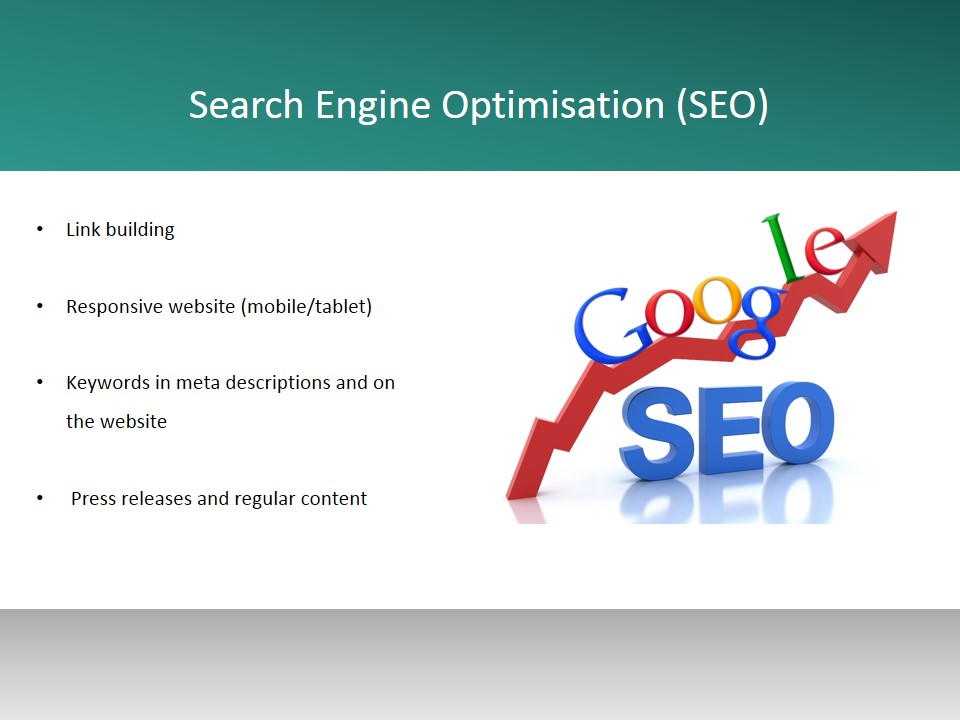A LinkedIn message in February 2014 changed everything.
“Your profile popped up earlier and I took interest because we’re currently recruiting for a search marketing position and I thought it might be something you’d be interested in. We’re a 30+ person digital agency based in Newcastle, with some great current clients, including big brand, big brand, and big brand, to name a few.”
The first couple of years of agency life had been tough and I wasn’t sure what I’d do next.
I was desperate to find any job in digital marketing that could offer more than my below-minimum-wage salary. I was freelancing to try and make a little more money, and thinking about setting up on my own as I (naively) thought I’d done everything needed to run a small agency.

This was a proper agency though, with a real team and real clients, and they at least thought it was worth reaching out to me. It was the opportunity. I’d already been thrown in at the deep end and things could only get easier at a new agency.
At least, that’s what I thought until my first week.
Small fish, big pond
I’m sure most people will have at least one or two defining moments in their working lives or careers. It might not even be that significant or memorable.
For me, it was realising what being part of a fast-paced, established agency was going to be like. You’ll find more than enough water analogies in this chapter, but it really was a case of being a small fish in a big pond.
People with years and years of experience. Technical experts and specialist departments. Hierarchies and structures. Line managers and heads of departments. The big bosses and directors.
There was also more than one of me; 3 or 4 other people with the exact same job title and responsibilities. Not to mention all the people who had applied for the role and still wanted to be in my seat.
It was sink or swim as to whether I’d be cut out for this sort of environment, and I soon came to realise there was an even worse third option – to tread water.
Treading water
Agencies can be highly competitive places.
The best people get the work with the best clients. Working with the best clients gets you noticed. Being noticed gets you opportunities to progress. It’s as simple as that.
Sorry to be the bearer of bad news, but if you’re not being chosen to work on these clients, or if you’re working with an agency and the account team regularly changes or gets passed to the new starters, there are probably reasons for this.
The team at this new agency was absolutely brilliant. Naturally though, a few people had been there for a long time and had yet to progress. Staying in the same place, going round in circles each year, and mostly focused on keeping their heads above water.
Not every team can be full of “A players” and you might be quite happy to stay where you are. When push comes to shove though, there’s only a certain amount of opportunities, promotions, and pay rises to go round. Maybe even worse when the economy and industry are at a low point.
The good news is that you can influence this yourself, and leaders / managers can change things to benefit the team and business.
I’ve averaged a promotion or step up every 18 months over the last 10 and a bit years, and hired numerous people with little to no experience who have gone on to become hugely competent seniors and beyond.
These are some of my most valuable lessons about progression, both from the perspective of an employee and leader.
Impress, regardless
During the first few weeks in this new role, the rest of the team couldn’t wait to palm off certain clients onto me and the other new starters. There was literally a queue forming, and it turned out that some of these accounts had already been passed around more than an office cold in the lead-up to Christmas.
I’d come from an agency that worked with any type of business willing to pay the fees, from law firms to adult websites, so I didn’t actually mind which clients I worked on. Some of the handovers came with a sarcastic grin and “best of luck” though, so I was determined to prove myself.
Adult nappies? I’ll take it. The client that doesn’t sign any ideas off? Let me have a crack.
Everyone has certain accounts they prefer working on or industries that they enjoy. But there’s an opportunity to do great things for any client you work with, and your attitude or how you go about it is the most important thing.
I remember the stunned reactions from the rest of the SEO team when I was building endless backlinks for clients in tricky and “boring” industries, which most of them had previously struggled with. I was asked to show the team my processes and how I’d done it, but there wasn’t actually much to say. The only real difference was my determination to impress the client and my managers regardless of whether it was enjoyable.
And you can probably guess who got to work on the next exciting client that everyone wanted.
Healthy competition
I’ve seen both sides to working in and overseeing competitive teams.
Competition can motivate people, push them to improve, and get better results for clients and the agency. This was definitely the case for me.
Just as often though, it can have the opposite effect. People can be pushed so far that they start to sink, there’s unnecessary stress and worry, and crucially, those opportunities and promotions become the only focus. It can easily create a lot of resentment and tension.
The latter was one of my main memories from the first 12 months at this agency. People fighting to get ahead of someone else, noses being put out of joint because someone else was promoted, and actual tears when an exciting client was given to someone else. Managers had to spend most of their time trying to keep everyone happy and eventually, they addressed it head-on to stop it from spiralling out of control.
If you find yourself in a situation or team like this, flag it at the earliest opportunity, or deal with it quickly like my managers did. Leaders can influence healthy competition, but it’s sometimes not always obvious or in their control.
My best advice to managers is to reward contributions to the team instead of just focusing on the individuals, gamify things instead of pitting people against each other, help people to find common ground, and communicate clearly without justifying the minutiae of every decision.
Transparency
I was both affected by this unhealthy competition and probably contributed to it in some way in the beginning.
People talk outside of work, that’s all managers need to remember. I went through periods of being annoyed and frustrated solely because of what I’d heard on the grapevine about why someone had been promoted, given a certain opportunity, or how much their pay rise allegedly was.
It all comes back to transparency. If there is a clear understanding between you and your manager about your role, how you’re performing, how to progress, and what you can earn, the wider noise can be ignored and everyone can relax on a level playing field.
It’s no mean feat to make sure your agency is equipped for this, especially growing agencies. Clear roles and responsibilities, simple performance metrics, easy review processes, and transparent pay scales, as well as (crucially) training managers to be able to have these conversations.
People shouldn’t have to work harder at trying to justify their performance than actually performing. It can also never be too soon, or for an agency to be “too small”, to introduce these things.
Shadowing and mentoring
I’ve already mentioned it but the people at this agency were genuinely great. Some of the most switched on marketers that I’ve worked with, and I have no doubts that I wouldn’t have progressed without being around them.
A lot of agencies will have set induction plans for new starters, potentially over the first few weeks or months, but you’re potentially on your own once this is over.
The best thing I did was to never stop shadowing the more experienced and senior people in my team or other departments. Not only did this help with knowledge, I picked up so many little things from the way they approached situations, how they interacted with clients, and ultimately what I needed to do to get to their level. I felt this was my responsibility too, with more available time than they had, and it didn’t really take a lot to pull up a seat next to someone or ask a few questions.
This goes for mentoring too. It doesn’t need to be a forced, formal thing, as in “you are my mentor” and meet up once a month. These arrangements can be great, but every interaction and conversation that you have with someone more experienced can lead to taking steps forward.
I can name plenty of people that I class as “mentors” from this agency, but they probably don’t even know it to this day, and it’s something I’ve always tried to do for other people ever since.
Seniors can underestimate how much they are influencing newer or less experienced team members from the way they do things and even behave. You can always do more; ask if they want to sit in the background of your client call or meeting, assign them as a support on the bigger clients accounts, and give them a chance to see what it’s all like. It will benefit everyone further down the line.
Out of hours
There’s only so much you can do during the 9 to 5, or within the flexible hours that your agency works. It’s probably consumed with meetings, calls, and client work, whilst professional development can quite easily take a backseat.
I knew from speaking with my manager and shadowing the experts that I had a big gap in knowledge when it came to the technical side of SEO. I’d never done it before and it seemed like something that you only got if you had a background in web development.
Things weren’t clicking for quite a while and I could see this would hold me back from progressing. So, I made it a priority inside work and out of hours. I started freelancing for smaller clients with fewer risks, created my own websites that I could break without worrying, and found every relevant article and video possible during lunch breaks and on evenings.
Now, I’m not suggesting that everyone does this, but it was necessary because of time. I was getting plenty of support from the technical experts in the team too, but if I hadn’t put this into practice without the pressures of client work, I honestly don’t think I’d have got it.
This can apply to any knowledge area or skill too, whether you’re starting out, looking to step up, or hoping to go in a different direction. There are lots of ways to become a better people manager, learn about leadership, or understand how agencies operate and make a profit, all in your own time and without having to wait.
Soft skills
Finally, it’s important to mention that progression isn’t all about what you know. You can be at the top of your game or more knowledgeable about something than anyone else, but still find yourself in the same spot.
The unfortunate truth with a lot of agencies is that progression means taking on additional responsibilities outside of your core job. Whether it’s managing a team, getting involved in sales, or taking a lead on something, these are the things that usually justify a promotion or better pay.
And those skills might not come naturally to you. I’ve seen plenty of people held back for these reasons and they might not have even known as it can be difficult as a manager to broach this topic or set goals because it often relates to soft skills. Confidence, communication, public speaking, teamwork, managing workload, or even attitude.
These aren’t easy conversations to have. I’ve found the best approach on both sides is to look at it objectively based on facts, and not subjectively based on opinions or feelings.
To give you an example, I’m pretty reserved and quiet, and speaking in front of lots of people didn’t come easy – especially 10 years ago starting out at this agency. I knew straight away that I’d struggle given how much face time there was with clients and how extroverted a lot of the team were. The fact was if I wanted to progress, I had to be able to be comfortable presenting to clients and in front of people.
There’s not always a quick solution though. I hated it at first, but it takes time and a few uncomfortable moments or mistakes to get there.
Think of it like that Royal Navy advert, “if you can fix your nan’s dishwasher, then you can fix a helicopter”. Maybe not as extreme, but if you can present to your manager, you can present to your team. If you can present to your team, you can present to the agency. If you can present to your agency, you can easily present to a room full of clients or sales prospects. And so on, until you’re on stage at a big marketing conference (if that’s what you’re aiming for!)
You can apply this to any development area too, whether it’s managing people, getting involved in strategy or more technical aspects of your role, and even stepping up to become a director of an agency.
Think about where you want to go and what the first step is. Figure out the soft skills needed, say yes to uncomfortable opportunities, and ask for regular feedback.
I can promise that by the time you’re fed up of waiting or itching to progress, you’ll have missed plenty of chances to have already started working on yourself.


